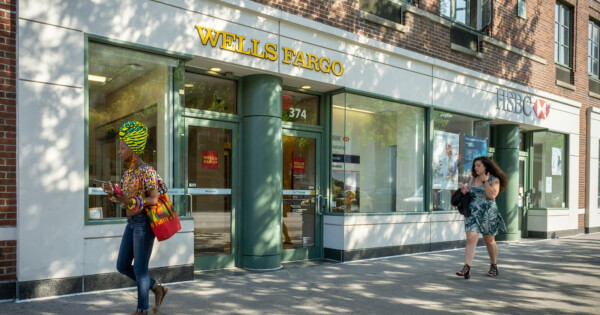HSBC and Wells Fargo have signed a strategic agreement to use a settlement ledger powered by blockchain technology when undertaking foreign exchange (FX) transactions. This move is deemed a stepping stone towards minimizing settlement risk.
In a statement, Mark Jones, co-head of Macro, Wells Fargo Corporate & Investment Bank, welcomed this move and said:
“We are extremely excited to be collaborating with HSBC on a project which places both organizations at the forefront of blockchain innovation. We believe this will be the first step of many utilizing transformative technology across our industry in the years ahead.”
Using blockchain technology, two banks will enjoy efficient Payment-vs-Payment (PVP) settlement netting. Furthermore, real-time transparency will be availed in the FX transactions.
The blockchain-based settlement ledger is also expected to reduce associated settlement costs in the $6.6 trillion-a-day foreign exchange market.
The agreement also means that the two leading financial companies will bypass the nearly two-decades-old Continuous Linked Settlement (CLS) system used for FX transitions.
The ledger will be used to process the US dollar, Canadian dollar, Euro, and British pound sterling transactions with plans to extend to other currencies soon.
Mark Williamson, the global head of FX partnerships & propositions at HSBC, noted that this was a step forward towards more financial innovations.
“As financial services continue to digitize the store of payment and value on blockchain, we are delighted to work with Wells Fargo in the adoption of this important cross-border digital backbone for the confirmation and settlement of Foreign Exchange trades.”
Meanwhile, the central banks of France and Switzerland, together with the Bank of International Settlements (BIS), successfully conducted a wholesale Central Bank Digital Currency (CBDC) trial involving the nations’ fiat notes.
Image source: Shutterstock
Credit: Source link














































